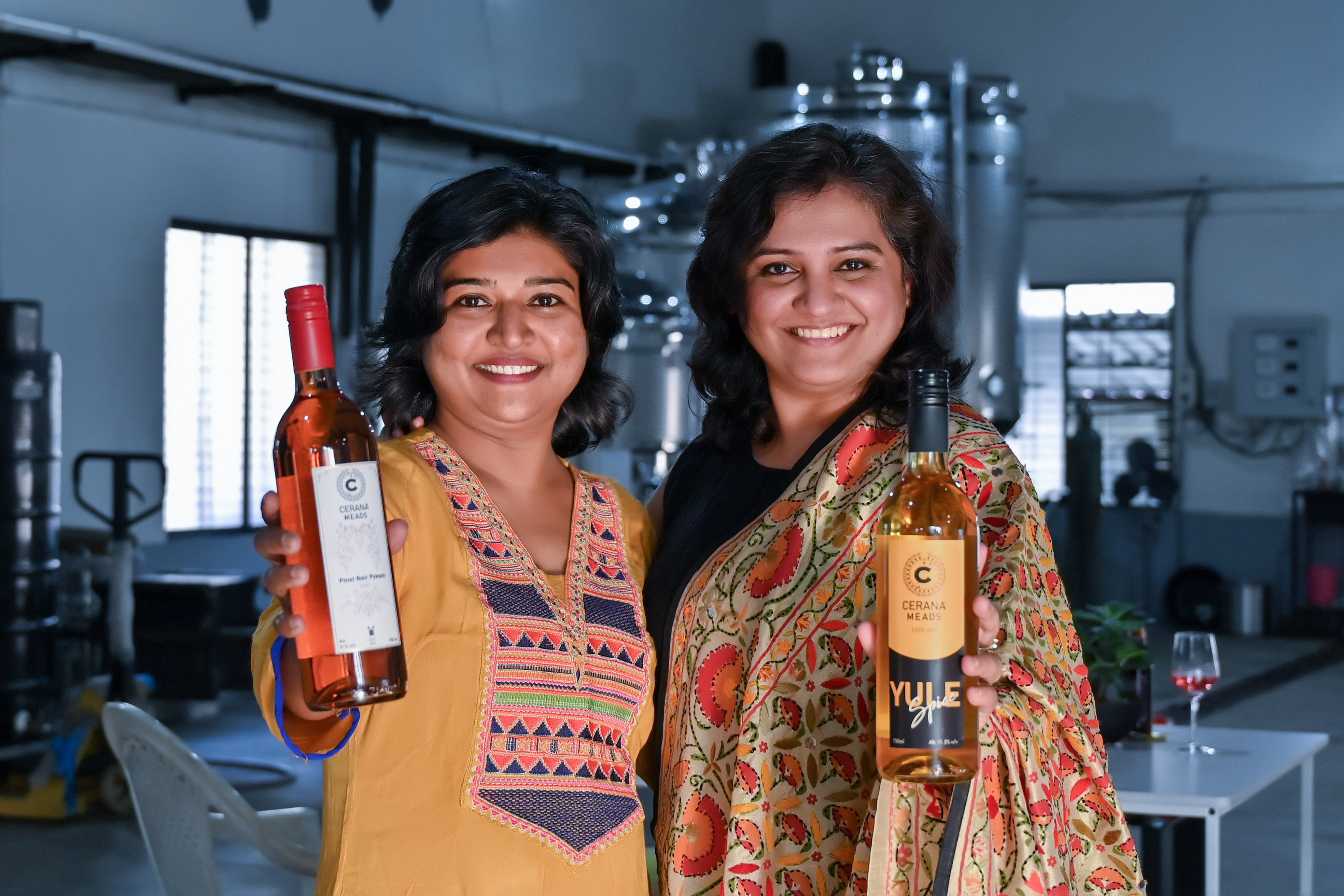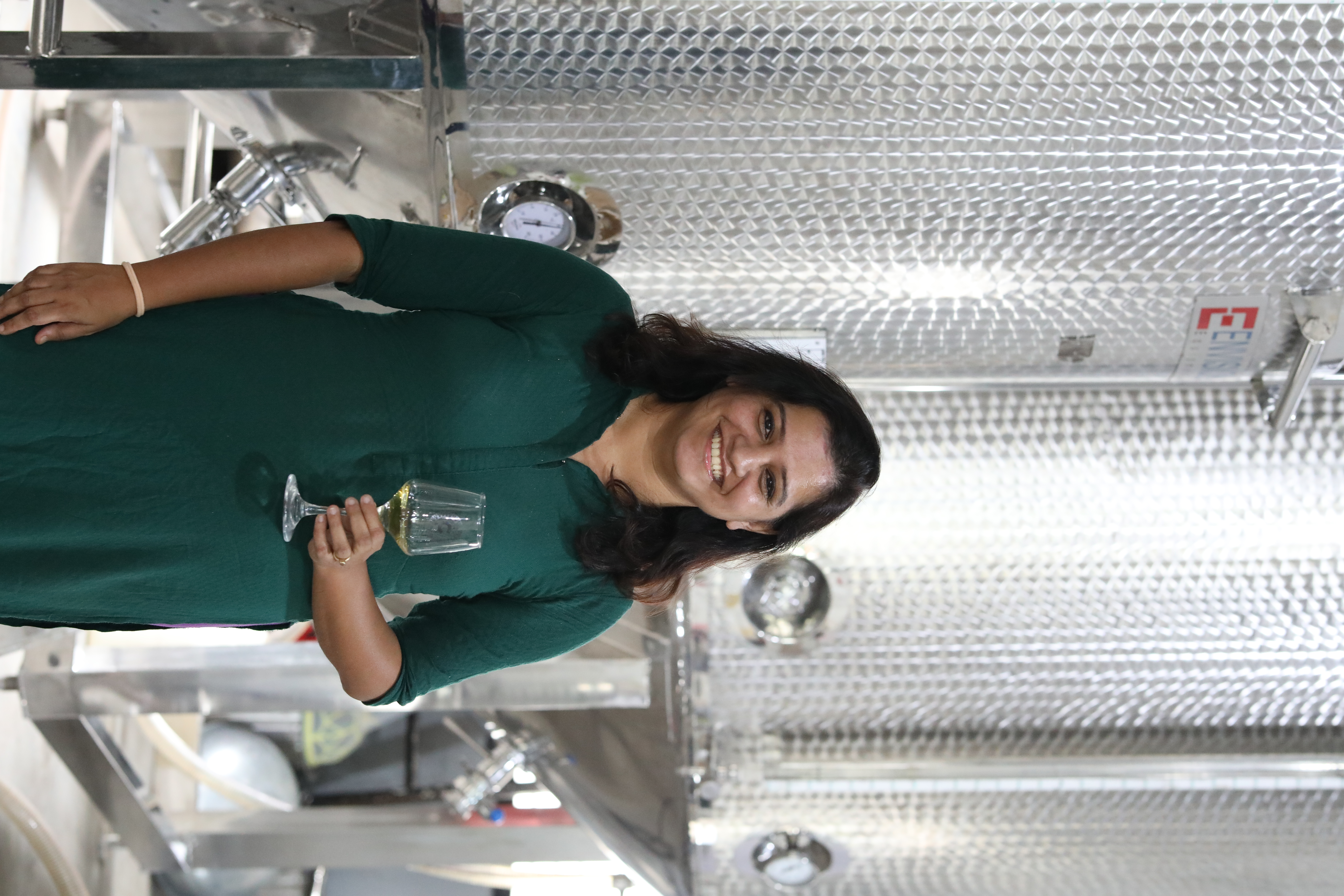Dr. Yoginee Budhkar is the Co-Founder of one of the first meaderies ever to be conceptualized in India. She has led the reform in the policies introducing mead as an alcoholic beverage with the State Excise Department in Maharashtra. Subsequently, these policies have been adopted by other states in India.
With her partner Dr. Ashwini Deore, Dr. Yoginee laid the foundation stone of “Cerana Meads” in 2016. Their meads were launched in November 2019. And are available in 5 markets – Mumbai, Navi Mumbai, Thane, Pune & Nashik as of August 2023. She has taken training in basic & advanced mead making from the University of California & has trained in the business of mead making from UC Davis.
In an exclusive interview with Nitish Raj; Editor-in-Chief, Today Magazine the emerging entrepreneur talks about the various aspects of meaderies and the rising acceptability of alcoholic beverages in the country.
Q.1: How tough it is to build a business in India with meads which has not just very strong societal unacceptability along with various legal restrictions?
YB: There are some factions of society against hard liquor that is cheaply available with the main purpose of giving people a high. Mead, unlike these alcoholic beverages, and like wine and beer, is a fermented alcoholic beverage, which has been a part of the culture and history of the entire world including India. It not only has the potential of having a positive socio-economic impact on our beekeeper community but also a strong environmental impact on all of us, and hence has garnered government support in the form of easier excise duties and new regulations under EODB (Ease Of Doing Business) that have been passed over the last few years.
Q.2: People are very particular about brands when it comes to beverages. How Cerana Meads is trying to be their priority brand being a relatively newly established company?
YB: A large portion of the Indian market is as price-sensitive as it is brand-sensitive. Our target audience are individuals, who are socially conscious and well-informed, transcending generational boundaries; they demand quality and environmental ramifications of their choice. They are also open to try newer brands that come into the market. We understand that we are not only a new brand but a new category of alcobev, and our task is herculean, however, it doesn’t daunt us. We have a clear path of making a great quality product that caters to the taste of our target market and plans to steadily build it up. The main channels through which this can happen are education and awareness, participation in events, and direct facetime with our customers through online and offline media.
Q.3: Cerana Meads has launched multiple flavors of its drinks. Don’t you think sticking to very selective numbers of flavors would have helped in its rapid growth?
YB: Mead industry is very nascent with a lot of unknowns, and I am saying this not just for India, but worldwide. We have 6 brands in our portfolio, each with its unique taste and flavor profile. Having these many flavors out in the market helps us assess the response to these products. It also helps us explain to our customers that mead is a versatile drink and there is a mead for everyone. We plan to expand our product portfolio with more exciting new flavors for people to try and will make a decision on whether any need to be discontinued in the future.
Q4.: What has been your journey in discovering the world of meads, and it’s business? Any educational courses that helped you in this journey?
YB: Ashwini and I have doctorates in Bioprocess tech and Biotech from Mumbai University, and I studied mead making as a crash course at UC Davis. The course was called Advanced mead making and business of mead making. Although the business of mead-making course was largely designed for the American population, there were some great takeaways for designing a commercial meadery and scale-up operations in that course. This has come in very useful for us when we set up our meadery. From a business point of view, there was a lot to learn with India as our playground.
Q.5: Cerana Meads is currently available in various cities of Maharashtra. Is it going to be a regional-specific brand, or the company is planning its expansion to other parts of the country?
YB: We plan to expand our wings to other states in the country in the next FY.
Q.6: What challenges do you have to face as a female entrepreneur in a domain that has a rich history of being a male-dominated industry?
YB: It is natural to get this question in mind, however, our firsthand experience has been that this is probably the most gender-neutral domain and industry to work in. We have never had to face any challenge that our male peers haven’t faced themselves.
Q.7: India has a very rich history of beverages. How Cerana Meads is able to keep the tradition alive even after the influx of modern innovation?
YB: We are looking at breaking the traditional approach to drinking in India while encouraging our consumers to move away from hard beverages and towards fermented alcoholic ones. While doing so, we plan to keep our sourcing as local as possible with innovative recipe designs to bring familiar flavors to the table in a tantalizing manner.






